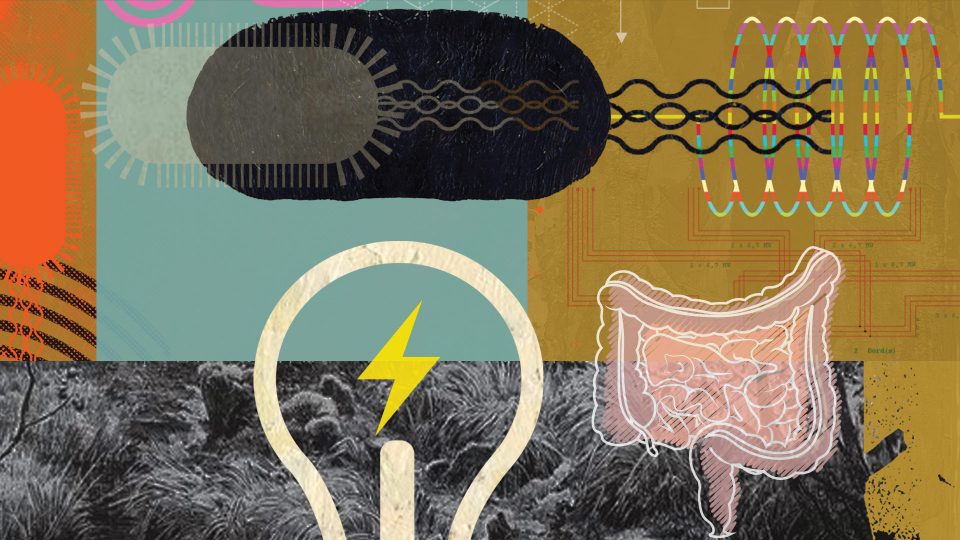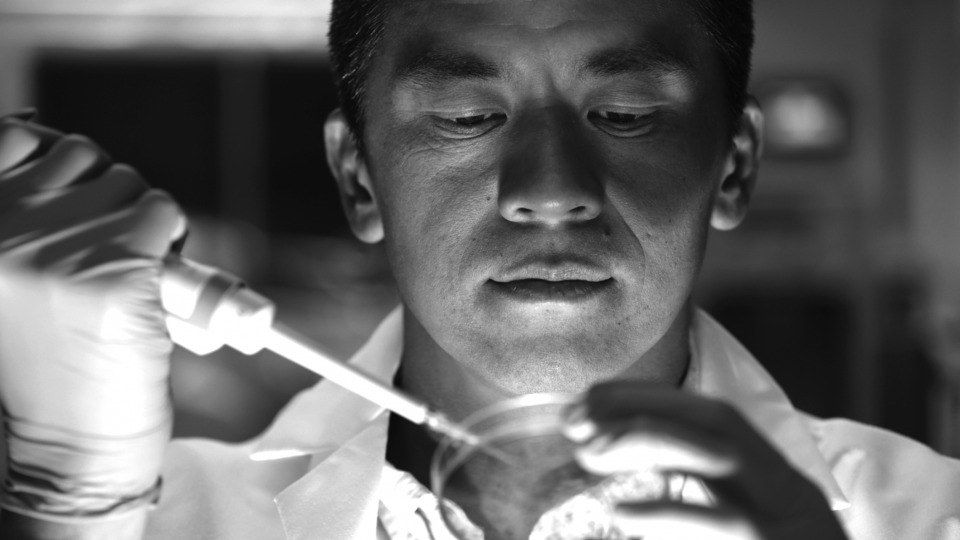
“All disease begins in the gut.”
That was the belief of Ancient Greek physician Hippocrates, now considered the father of modern medicine. Although disease etiology may be significantly more complex, the ever-increasing scientific appreciation for the gut microbiome is lending credence to this near 2,500-year-old wisdom. The gut microbiome is the ecosystem of bacteria, viruses, protozoa (single-celled organisms) and fungi that lives in our gastrointestinal tract and carries out an array of vital functions. With divergent thinking that spans the disciplines of chemistry, microbiology, immunology and oncology, Howard Hang is discovering how these microorganisms may be formidable allies in the treatment of infections, cancer and other major diseases.

Q&A
Have you always been interested in microbes?
I wouldn’t exactly say I was always even that interested in science. I’m originally from Vietnam and I immigrated to the United States with my family when I was four years old. It wasn’t until my undergraduate experience at UC Santa Cruz that I finally saw the appeal of science. I was one of these people who was lured by organic chemistry and the ability to synthesize natural products. I eventually got enticed by chemical biology when I studied glycans during my PhD at UC Berkeley. Glycans are a class of sugar molecules found on the inside and outside of cells that act as diverse molecular signals for processes like activating our immune system. It was this process in particular that got me thinking about host-microbe interactions and infectious diseases, which I explored during my postdoc at Harvard Medical School and Whitehead Institute. When I started my own lab at The Rockefeller University in 2007, I simply got swept up in the buzz around the gut microbiome. Scientists were identifying so many new species of bacteria, but it was hard to figure out what they were doing for our immune system, as well as our overall health. Since our lab was bringing new tools in chemical biology to explore these interactions, I guess we were well-positioned to help answer some of these important questions.
So, what is so special about the bacteria in our gut?
If you think about it, the bacteria in our gut are essentially another organ, which is then a direct connection to the outside world. It’s a community of cells, but one which in principle has between 10 and 100 times greater genetic and functional capacity than our whole genome encodes. We have about 30,000 genes, but if you add up the total number of genes from all the bacterial species, it is more than two orders of magnitude more genetic diversity for us. These microbes can process nutrients from our diet that we wouldn’t be able to and the molecules they produce have a major influence on our immune response. Our immune system is connected to every single aspect of our bodily processes, from basic metabolism to our cardiovascular network, to our nervous system. So, by just tweaking our metabolism and our immune system, the microbes can essentially control most of our physiology. I know there are some traditional medicines associated with microbes that are passed down from different cultures in terms of behaviors and dietary practices, so there must be something to it, otherwise it wouldn’t have lasted all these millennia. It’s just getting underneath the basic science of it that’s the big challenge.
How has your lab been studying the therapeutic potential of these microbes?
Well, believe it or not, we started off using worms as our “model gut.” Many of my colleagues thought this was a bad idea since they do not share the exact same features of mammalian immune systems, but it still turns out that worms such as C. elegans make for an extremely useful model organism for exploring host-microbe interactions. We would give these worms different strains of bacteria to see if they would protect them from pathogens like Salmonella. Our lab discovered that one bacterial species called Enterococcus faecium releases certain molecules in the gut, which can activate the immune system and protect both worms and mice from infection. Initially, we weren’t sure what the implications might be, but then scientists learned that these bacteria we were studying were also enriched in those cancer patients who responded better to immunotherapy. Since we were characterizing these signaling pathways, it was a natural thing for us to ask whether the molecules released from these bacteria would also be sufficient to enhance the effects of immunotherapy against cancer. Ultimately, we now see that by administering the bacteria in conjunction with a class of cancer drug known as immune checkpoint inhibitors, the animal’s immune system is far more capable at clearing away the tumor. Since Scripps Research is in such a strong position to translate these basic science discoveries into therapeutic leads, we’re now trying to find other natural molecules from bacteria and synthetic compounds that could enhance not just cancer immunotherapy, but also improve the immune response to vaccines.
Does this mean that probiotic foods could help our immune system to fight off different diseases?
How you interact with your environment certainly influences the balance of microbes in your gut that could prime your immune response. And diet is definitely a key component of that. As for probiotic and prebiotic foods directly, that’s a trickier question. Often the bacterial cultures you get in yogurts and other fermented foods may not be active enough to elicit beneficial immunological properties. Certain sub-species of bacteria such as Enterococcus that we’ve been working on have also been linked to antibiotic drug resistance, so we wouldn’t be able to use these as oral supplements. As you can see, it’s a very fine balance. Luckily, with all the scientific studies that have been carried out on the gut microbiome, you can now ask if we can re-engineer existing probiotics, as well as explore whether there are other bacteria species that would share just the beneficial properties of Enterococcus. That’s something that my lab is currently investigating.
What does the future hold for microbial medicines?
I think it’s clear that there will be an increase in more science-driven microbiome interventions, such as synthetic communities of bacteria that we actually understand the mechanisms of action for. As of right now, fecal microbiota transplants can be effective, but they are heterogeneous and may have variable results. We need a better grasp of which specific microbes might be useful for different indications such as boosting our metabolism or tweaking our immune system. These bacteria will also teach us which pathways to tickle as chemists, so that we can then synthesize compounds that mimic those microbial products and can be optimized for medical treatments. It’s such an exciting time. Our mechanistic studies highlight how fundamental scientific curiosity and a good experimental system can lead to breakthroughs with potential clinical impact.